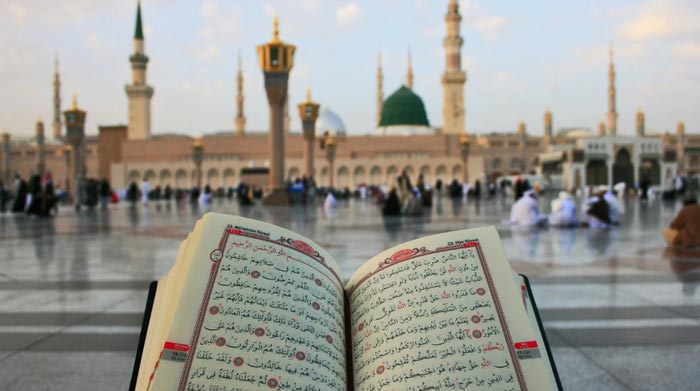The Significance of Fasting in Ramadan 2025
Contents
- 1 Significance of Fasting in the Quran and Hadith
- 2 The Significance and Benefits of Fasting in Ramadan 2025
- 3 The Significance of Fasting From a Philosophical Perspective
- 4 Fasting Is Good for the Body and Soul
- 5 Physical Fasting vs Spiritual Fasting Reveals the Significance of Fasting in Ramadan 2025
- 6 Fasting and Humility
- 7 Conclusion
One of Islam’s pillars is fasting, which can be both an obligatory and recommended act of worship. Muslims are religiously obligated to fast throughout Ramadan, but fasting during other months is recommended. It is haram (prohibited) to fast on Eid al-Fitr and Eid al-Adha, two Muslim feasts. This article will explore the significance of fasting in Ramadan 2025, its benefits, and its effects.
Significance of Fasting in the Quran and Hadith
Allah explains the chief reason for fasting: becoming Godwary:
يَا أَيُّهَا الَّذِينَ آمَنُوا كُتِبَ عَلَيْكُمُ الصِّيَامُ كَمَا كُتِبَ عَلَى الَّذِينَ مِن قَبْلِكُمْ لَعَلَّكُمْ تَتَّقُونَ ﴿١٨٣﴾
O you who have faith! Prescribed for you is fasting as it was prescribed for those who were before you, so that you may be Godwary. (183)
He also reminds us in the Quran that fasting greatly benefits us if only we know:
وَأَن تَصُومُوا خَيْرٌ لَّكُمْ ۖ إِن كُنتُمْ تَعْلَمُونَ ﴿١٨٤﴾
And to fast is better for you, should you know.
One might ask: How does fasting make us Godwary? Fasting is a spiritual exercise. Just as physical exercise strengthens you, a spiritual exercise such as fasting strengthens your soul. In other words, fasting strengthens your willpower. A person who can abstain from food, drink, and intercourse for long hours can also resist sins. In fact, other than food, water, and intercourse, a person who fasts must also refrain from sinning. A person who is capable of abstaining from sins will be able to practice taqwa with greater ease. This is what attaches significance to fasting in Ramadan.
Then Allah says that fasting is better for us if only we knew. It’s been proven scientifically that fasting is highly beneficial for the body. Fasting purifies the body of toxins and cleanses the liver, kidneys, and blood from impurities. Those who fast become immune to many diseases. Fasting helps lose weight and promotes heart and brain health. However, this is just the tip of the iceberg. The benefits of fasting for the soul are much more than for the body. Fasting is an act of complete submission and servitude to Allah. It increases spirituality and brings us closer to Allah. The rewards of fasting are unimaginable.

Allah Himself Rewards Those Who Fast
The Prophet (s) has said:
قالَ اللّهُ تباركَ و تعالى: كُلُّ عَمَلِ ابنِ آدَمَ هُو لَهُ، غَيرَ الصِّيامِ هُو لي و أنا أجزِي بهِ.
Allah (SWT) has said, “Whatever the children of Adam do concerns themselves, except fasting, which concerns Me, and I Myself am the one who gives its reward.” [Al-Khisal, vol. 45, p. 42.]
A Test for Sincerity
Imam Ali (a) has said:
فَرَضَ اللّهُ… الصِّيامَ ابتِلاءً لإخلاصِ الخَلقِ.
“Allah prescribed fasting to test the sincerity of His creation.” [Nahj al-Balagha, Saying 252]
Fasting Is a Shield Against the Fire
The Noble Prophet (s) has said:
الصَّومُ جُنَّةٌ مِن النارِ.
Fasting is a shield against the Fire.
The Significance and Benefits of Fasting in Ramadan 2025
Allah states in the Noble Quran that fasting is good for us if only we know. Fasting has many physical, psychological, and spiritual benefits. First, let’s start with the physical benefits. Fasting has been proven to improve health and has recently become very popular among those who want to lose weight, gain muscle, cure illnesses, and improve general health. Fasting detoxifies the body. It purges the waste accumulated in different organs, including the liver, kidneys, pancreas, stomach, and colon. Fasting reduces the bad LDL cholesterol and raises the good HDL cholesterol. It controls blood sugar levels and blood pressure and balances hormones, leading to weight loss. Of course, one should not overeat during iftar and consume too many calorie-dense foods to maintain a healthy body and weight.
The Spiritual Benefits of Fasting
Then come all the spiritual benefits of fasting. It has been proven anecdotally that dry fasting ignites spiritual feelings and brings spiritual enlightenment. When someone fasts, both their body and soul are under stress. This physical and spiritual stress strengthens the soul just like exercise strengthens the body. Therefore, the soul experiences heightened levels of spirituality. This, in turn, causes one to be inclined to communicate with Allah and do things that cause one to get closer to Him.

The Significance of Fasting From a Philosophical Perspective
As we said, Allah has prescribed fasting for us so that we become wary of Him. This is the first thing Allah says about why we fast. Fasting wards off sins. It is all about self-control. When you learn how to control yourself from eating, drinking, and having intercourse, your ability to control yourself from other desires increases as well. That is why the Prophet (s) said, “The unmarried who cannot control their sexual desires should fast.” Consequently, it increases one’s piety or taqwa. Practicing taqwa becomes much more manageable while fasting. Fasting also represents obedience to Allah (SWT). For whom else is one willing to forgo eating, drinking, and sexual activities other than Allah (SWT)? Therefore, it is a sign of absolute obedience to our creator.
Another reason for fasting is to appreciate those who do not have food or drink. Allah (SWT) wants every well-off person to feel like a poor person who goes several hours without food or drink. This way, they become grateful for the blessings Allah has given them.
Fasting Is Good for the Body and Soul
Ramadan is the only month that Allah has made fasting obligatory for Muslims. Only those with valid excuses, such as illnesses or weakness due to age or other conditions, can forgo fasting. Fasting is beneficial for both the body and soul. Just as it purifies and detoxifies the body of impurities and wastes, it cleanses the soul of all evil. Pious people enjoy fasting, and no other act of worship is as pleasurable to them as fasting. Fasting is not what Allah needs from us, but rather something we need to prosper. Even though fasting keeps us away from sins, we must also deliberately distance ourselves from any sinful activity lest Allah does not accept our fasts. The person who fasts has many rewards. Breathing is like saying dhikr, and sleeping is like worshipping Allah.
Physical Fasting vs Spiritual Fasting Reveals the Significance of Fasting in Ramadan 2025
All those capable of fasting can cope with the difficulties of fasting. However, another dimension makes us understand the significance of fasting in Ramadan: fasting of the soul. This means avoiding all sins. If someone fasts but engages in sinful activities, their fasts will not be accepted by Allah. Of course, this doesn’t mean they shouldn’t fast or break their fasts due to sinning. It does lift the burden of fasting from their shoulders, yet their fasts will not entail the rewards and spiritual benefits of a clean fast. Those who fast should not lie, backbite, slander, cheat, or commit any other sin.
Although fasting doesn’t always deter us from sinning, it is a powerful practice that significantly helps with resisting the temptations of Satan. Fasting increases our obedience to Allah and engenders feelings of gratitude toward Him. It arouses our conscience and causes us to remember the blessings of Allah, thank Him for them, recall our past sins, and beg forgiveness for them. Fasting gravitates us toward righteous acts, especially acts of worship such as prayer and dua. Even though fasting for a whole month is done at least once a year, it dramatically bolsters the body and soul to serve Allah throughout the year.
Fasting and Humility
One of the things that makes us understand the significance of fasting in Ramadan and greatly determines whether a person prospers or becomes miserable in both worlds is how humble they are. If people think they are on the right path and that Allah favors them, they are on a slippery slope. Humility is something that is required for a good servant of Allah. Even if a righteous person does not show humility and thinks they will always be good, they will overlook their mistakes and sins, big or small. The good thing about fasting is that it increases the sense of humility in those who observe it. It brings them back to their senses and helps them realize they are not as good as they thought. How? When you fast, you become conscious of your actions not to break your fast physically and spiritually.
That is why our narrations tell us that Satan is shackled during Ramadan. Only those who are inherently evil and whose carnal soul incites them to sin are vulnerable to sin. Fasting reveals an individual’s weaknesses because a person who fasts is much more careful not to commit any sins, and if they do, they will quickly realize that they sinned. A person who doesn’t fast is not like this.
Conclusion
Fasting is one of the pillars of Islam. One of the distinctive features of Muslims is that they fast for a whole month during Ramadan. Fasting has many benefits for the body and the soul. It purifies the body of wastes and impurities and cleanses the soul of all evil. Fasting increases one’s piety, humility, and self-control. In short, fasting equips Muslims with the best weapon to fight against Satan and remain obedient to Allah and steadfast in treading the straight path.

